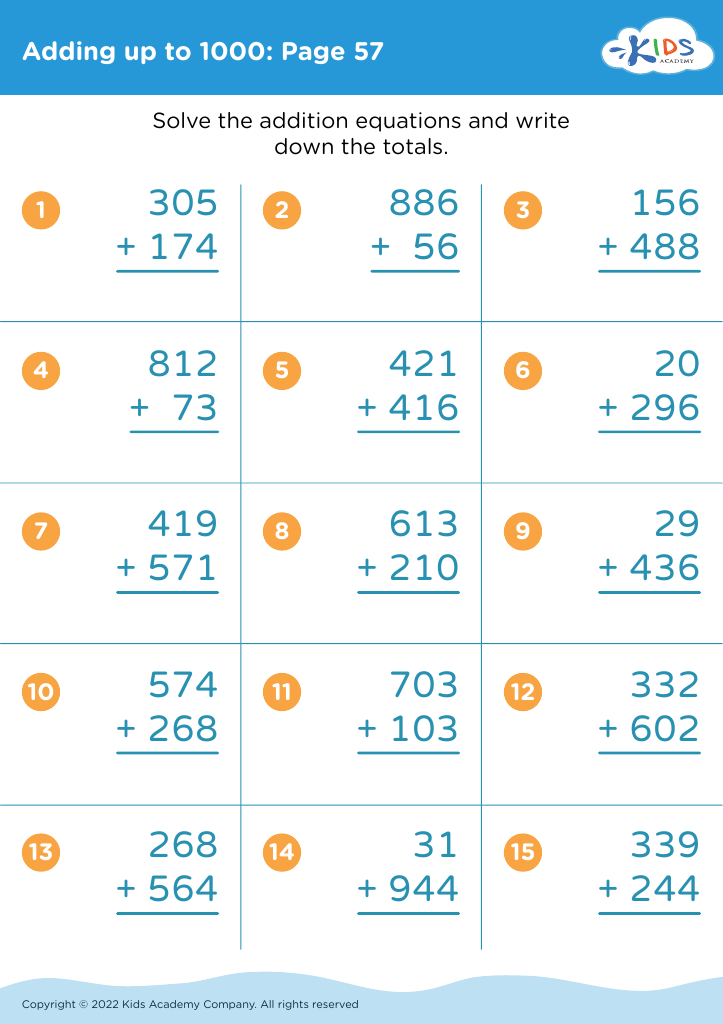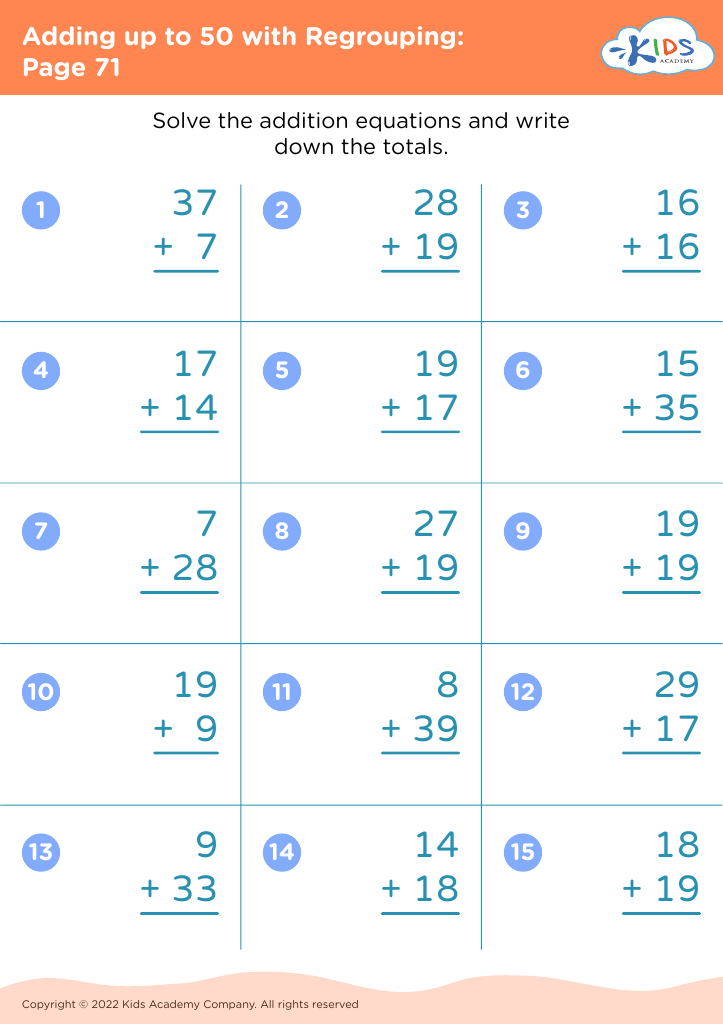Motor skills development Addition & Subtraction Worksheets for Ages 6-8
4 filtered results
-
From - To
Explore our engaging Addition and Subtraction Worksheets designed for children aged 6-8, focusing on motor skills development! These worksheets beautifully blend mathematic principles with fine motor skill enhancement, making learning both fun and effective. Each activity encourages critical thinking while allowing children to improve their hand-eye coordination and pencil control. From coloring numbers to connecting dots and writing sums, these interactive exercises cater to various learning styles. Perfect for home or classroom use, our worksheets empower young learners to build confidence in math while sharpening essential motor skills. Start your child’s learning journey today with our colorful and vibrant resources!
Motor skills development is crucial for children aged 6-8 because it significantly impacts their overall learning, including foundational skills in mathematics like addition and subtraction. During this developmental stage, children refine their fine and gross motor skills, which enhance their ability to manipulate objects, write, and work with educational tools such as counters or number lines.
Strong motor skills help children engage with hands-on activities that reinforce arithmetic concepts. For instance, using physical objects to visualize addition or subtraction reinforces understanding of these mathematical operations. Additionally, fine motor skills are essential for writing numbers and symbols neatly, which contributes to their confidence in math tasks.
Moreover, when parents and teachers nurture motor skills alongside academic learning, they promote holistic development. Good motor coordination can improve focus and prevent frustration in academic settings, setting the stage for a positive relationship with learning.
Finally, supporting motor skills development fosters social skills through group activities like math games, emphasizing teamwork and communication. In summary, caring about motor skills development not only supports children's mathematical abilities but also enhances their overall growth, confidence, and enjoyment of learning during this critical age.























